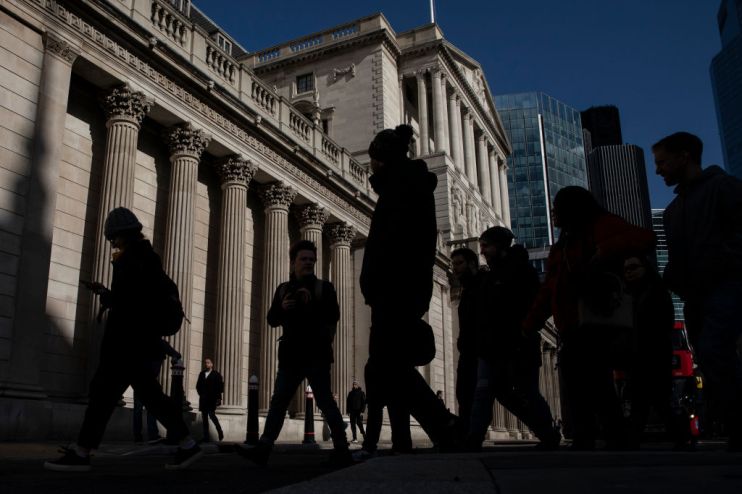FTSE 100 tumbles to year low and gives up 2023 gains after hitting record high just months ago

London’s FTSE 100 tumbled to its lowest closing level this year today as the index was captured by a global stock market sell off ignited by traders fretting over further interest rate rises.
The capital’s premier index cratered 2.24 per cent, its biggest one day fall since March, to close at 7,275.60 points, while the domestically-focused mid-cap FTSE 250 index, which is more aligned with the health of the UK economy, also slid over two per cent to below the 17,000 point mark.
Shares in Britain’s largest companies nose dived today and have been on a downward spiral for weeks on fears that the UK economy may be headed into a recession after all.
The squeeze on households and businesses from higher interest rates to tame sky high inflation is set to tighten, raising concerns about companies’ capacity to thrive amid receding economic activity.
Analysts at JP Morgan reckon the Bank of England could be forced to send rates to as high as seven per cent if price pressures fail to ease. Their base case is for rates to reach 5.75 per cent.
Traders yet again ratcheted bets on peak Bank Rate today, wagering it could hit 6.75 per cent. The last time borrowing costs in Britain were that high was 1998. That will feed through to mortgage rates, which has already raced past six per cent.
FTSE 100 has whipsawed all year, but is now firmly in the red

Yields on UK government debt extended its upward march. The rate on the 10-year gilt hit levels seen in the aftermath of Liz Truss’s mini budget.
Pound sterling was flat against the US dollar.
Across the pond, a batch of data has also signalled more rate rises are coming, forcing traders to retreat from riskier markets.
Minutes from the US Federal Reserve’s latest interest rate meeting, in which they paused their hiking campaign after ten straight rises, released last night signalled officials intend to resume tightening this month. Numbers today revealed the American jobs market is still in rude health despite the Fed’s efforts to rein it in, raising the chances of the central bank keeping rates higher for longer.
That news sent Wall Street lower during opening exchanges. The S&P Global, Dow Jones and Nasdaq all opened around one per cent lower.
China is a huge consumer of raw materials, so any demand slump in the world’s second largest economy would squeeze commodity producers’ income.
Miners Glencore, Antofagasta, Anglo American and Fresnillo were all sharply lower today in the City. Just two stocks rose on the FTSE 100, United Utilities and Severn Trent.
Sagging risk sentiment pushed the FTSE 100 to below its 2023 low, reached in March after a string of banking collapses in Europe and the US amplified anxiety over the health of the worldwide economy.
FTSE 100 companies have undergone a sharp reversal in fortunes over the past couple of months.
In the first quarter of 2023, the index breached the 8,000 point mark for the first time ever and was among best performing indexes in the world.
Now, it is actually down more than two per cent so far this year, leaving it lagging far behind Wall Street’s main indices, the S&P 500, Dow Jones and Nasdaq. That trio are up 14 per cent, two per cent and 28 per cent respectively.
Europe’s Stoxx 600, which tracks the share prices of the continent’s biggest firms, is up more than four per cent in 2023. It fell 2.5 per cent today.
Japan’s Nikkei index has turbocharged more than a quarter so far this year, while Hong Kong’s Hang Seng is down around five per cent.